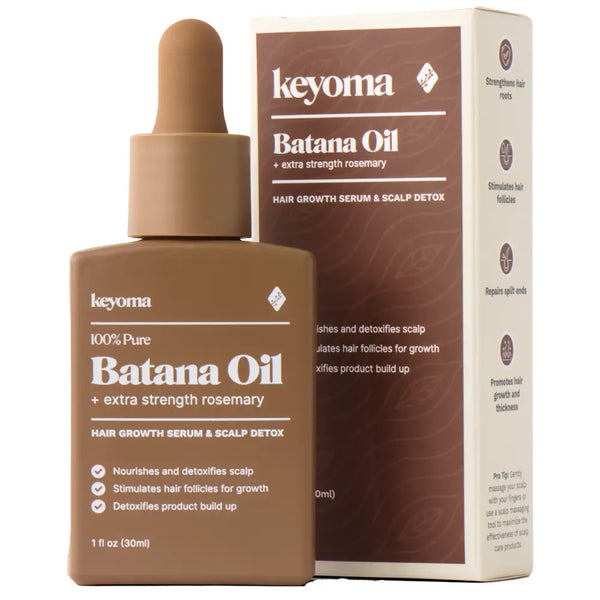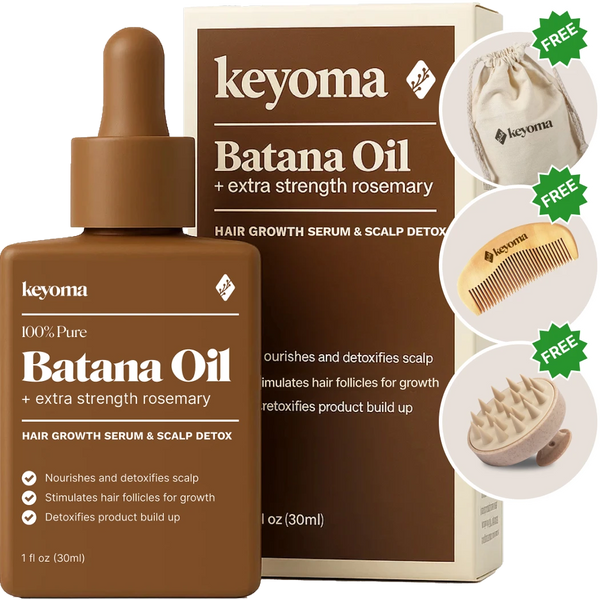In this article
You can often regrow hair on a bald spot, but it might take time and a few different treatments before you see the results you want. Stay patient, stay consistent, and explore your options.
Hair loss affects all of us—no matter our gender. But noticing a bald patch can still shake your confidence, stir up stress, and make you feel self-conscious.
Our hair can thin or fall out for many reasons, including:
- Stress
- Certain hair care practices
- Medical conditions that are inherited or are related to the body’s immune system
- Hormone levels
- Skin health
- Cancer treatment
In many cases, you can use treatments to regrow hair on bald spots or add thickness where your hair has started to thin. Stick with proven methods and stay cautious of products that promise fast results without solid research.
While home remedies sometimes help, you might need over-the-counter or prescription solutions if those don’t give you results. And if those still don’t work, you might want to look into medical or surgical options.
Let’s walk through what might be causing your bald spot, how you can start treating it, and when it makes sense to get professional help.
What Male Pattern Baldness Can Lead To
Hair loss can affect how we feel about ourselves, especially if it starts early. You might feel less confident or less attractive when your hair begins to thin.
If you’re having a hard time accepting male pattern baldness, talk to someone you trust—your partner, a close friend, or a licensed counselor.
Some treatments can come with side effects. Finasteride, for example, has been linked to mental health issues and sexual side effects for some. Talk with your doctor about these risks so you can make the best decision for your health.
How to Deal With a Bald Spot
Noticing a bald spot can catch you off guard.
Managing hair loss begins with accepting what’s happening, then taking steps to respond. It helps to remember you’re not alone—millions of us are facing the same thing.
Androgenetic alopecia affects around 50 million men and 30 million women in the U.S. Male and female pattern baldness, along with conditions like alopecia areata, are widespread.
To support your emotional well-being, try these practical steps:
Team up with a stylist to highlight the hair you still have, or explore options like wigs, extensions, scarves, or hats that fit your style.
Let your friends and family know how you're feeling and what kind of support would help you right now.
Reach out to a doctor—especially a dermatologist—as early as possible to explore treatments or procedures that can slow or even reverse hair loss.
Stay grounded in what lifts you up. Spend time with people and activities that bring you joy. Move your body to feel stronger and more energized.
Natural and Cheapest Way to Treat a Bald Spot

When we turn to natural ways to grow hair, we usually focus on boosting blood flow to the scalp and supporting healthy follicles to bring back stronger strands.
You can often find helpful hair growth ingredients right at home—products we already use for other reasons. Here are a few you can try:
Batana Oil
Batana oil offers a simple, affordable way to care for thinning hair. Packed with vitamin E and fatty acids, it helps nourish your scalp and protect strands from breakage. Many users report stronger, smoother hair with regular use.
You can massage batana oil directly into your scalp or apply it as a leave-in. It supports healthier follicles and may improve your hair’s texture over time. While it won't reverse severe balding alone, the batana benefits make it a smart first step in any hair recovery routine.
Rosemary Oil
Rosemary oil fights inflammation and boosts blood flow, which may support hair regrowth.
You can massage a small amount into your bald spot each night or switch to a natural shampoo that includes rosemary oil.
Peppermint Oil
We often use peppermint oil to ease headaches, soothe digestion issues, and manage other conditions. A 2024 study review found it helped with certain types of hair loss in mice, but researchers haven’t studied it much in people.
You can safely apply a small amount to your scalp or choose a shampoo made with peppermint oil.
Aloe Vera
We often turn to aloe vera to soothe burns and heal skin, but it might also support hair growth. Some older studies, including one in the Journal of Chemical and Pharmaceutical Research , suggest its anti-inflammatory properties, enzymes, and nutrients could benefit our scalp.
While we haven’t seen confirmed results for new hair growth, applying aloe vera to your scalp is safe. You can rub it in before washing your hair. For an extra boost, try mixing it with wheat germ oil and coconut milk.
Scalp Massage
You don’t need any products to start. A thorough scalp massage is one of the easiest ways we can improve blood flow and stimulate our hair roots to support fuller growth. While research hasn’t confirmed that massage alone leads to new hair growth, it can still support overall scalp health.
To try it, use your fingertips to gently but firmly press and move across your scalp for at least five minutes.
How Much Does It Cost to Fix Balding?
In the U.S., a hair transplant usually costs between $4,637 and $12,513. The price depends on the method used—FUE often costs more than FUT—and how many grafts you need to get the results you want. For example, filling in a receding hairline might take 800 to 1,500 grafts, plus 150 more for each temple.
Costs can also change based on the tools your surgeon uses. Some use robotic systems to extract and implant hair, while others stick with manual techniques.
Other details—like your provider’s experience, clinic location, and your hair goals—can also influence the total price.
- Where you live or where the clinic is located
- Your surgeon’s skill level and service charges
- Fees for anesthesia
- Medications or aftercare supplies
- Follow-up visits before and after the procedure
Hair Transplant Costs by Type
Here’s what you can expect to pay on average in the U.S. for FUT and FUE hair transplants:
|
Hair Transplant Type |
Avg cost |
Price Range |
|
Follicular Unit Transplantation (FUT) |
$5,975 |
$4,637 to $11,450 |
|
Follicular Unit Extraction (FUE) |
$6,684 |
$5,160 to $12,513 |
Average Hair Transplant Cost in the U.S.
Carecredit listed the average cost of follicular unit transplantation (FUT) and follicular unit extraction (FUE) by state or district in the table below:
|
State/District |
Estimated FUT Cost |
Estimated FUE Cost |
|
Alabama |
$5,331 |
$5,662 |
|
Alaska |
$7,214 |
$8,098 |
|
Arizona |
$6,030 |
$6,837 |
|
Arkansas |
$5,261 |
$5,733 |
|
California |
$7,561 |
$8,495 |
|
Colorado |
$5,922 |
$6,687 |
|
Connecticut |
$6,170 |
$6,629 |
|
Delaware |
$5,929 |
$6,672 |
|
District of Columbia |
$7,633 |
$8,106 |
|
Florida |
$5,935 |
$6,682 |
|
Georgia |
$5,337 |
$5,941 |
|
Hawaii |
$8,785 |
$10,449 |
|
Idaho |
$6,056 |
$6,816 |
|
Illinois |
$5,712 |
$6,536 |
|
Indiana |
$5,413 |
$6,077 |
|
Iowa |
$5,140 |
$5,554 |
|
Kansas |
$5,102 |
$6,049 |
|
Kentucky |
$5,350 |
$6,063 |
|
Louisiana |
$5,477 |
$6,249 |
|
Maine |
$6,196 |
$6,794 |
|
Maryland |
$7,144 |
$7,532 |
|
Massachusetts |
$7,741 |
$8,063 |
|
Michigan |
$5,445 |
$6,163 |
|
Minnesota |
$5,521 |
$6,300 |
|
Mississippi |
$5,146 |
$5,834 |
|
Missouri |
$5,248 |
$5,819 |
|
Montana |
$5,846 |
$6,615 |
|
Nebraska |
$5,312 |
$5,999 |
|
Nevada |
$5,992 |
$6,644 |
|
New Hampshire |
$6,285 |
$6,866 |
|
New Jersey |
$6,800 |
$7,439 |
|
New Mexico |
$5,356 |
$5,999 |
|
New York |
$6,832 |
$7,332 |
|
North Carolina |
$5,471 |
$6,235 |
|
North Dakota |
$5,439 |
$6,128 |
|
Ohio |
$5,451 |
$6,199 |
|
Oklahoma |
$5,121 |
$5,877 |
|
Oregon |
$6,342 |
$7,188 |
|
Pennsylvania |
$5,731 |
$6,593 |
|
Rhode Island |
$6,069 |
$6,980 |
|
South Carolina |
$5,668 |
$6,221 |
|
South Dakota |
$5,286 |
$6,034 |
|
Tennessee |
$5,394 |
$5,970 |
|
Texas |
$5,530 |
$6,139 |
|
Utah |
$5,979 |
$6,780 |
|
Vermont |
$5,986 |
$7,009 |
|
Virginia |
$5,757 |
$6,543 |
|
Washington |
$6,838 |
$7,461 |
|
West Virginia |
$5,229 |
$5,934 |
|
Wisconsin |
$5,572 |
$6,257 |
|
Wyoming |
$5,432 |
$6,070 |
Best Way to Treat Balding Hair

You’ll get the best results by matching your treatment to the cause and stage of your hair loss.
Start simple. If you notice thinning, begin with scalp massage and affordable natural oils like batana or rosemary. These methods improve blood flow and nourish your follicles without costing much.
If natural approaches don’t bring results after consistent use, move to over-the-counter solutions like minoxidil or shampoos with active ingredients. You can also talk to a dermatologist about prescription medications if needed.
For more advanced balding or stubborn spots, medical treatments like PRP therapy, low-level laser therapy, or hair transplants may offer stronger results. But these procedures often cost thousands of dollars and require multiple sessions.
Think of treatment as a ladder: start at the lowest rung with natural options, then move up only if you need more. You’ll save money and avoid unnecessary risks while still giving your hair a chance to grow back.
Reverse Balding with Keyoma: Take Control of Hair Loss
Finding a bald spot can shake your confidence, but you’re not out of options. At Keyoma, we help you take the first step toward regrowth with proven solutions that support your scalp and strengthen your strands. We know hair loss can feel isolating and overwhelming—but you’re not alone, and you don’t have to guess your way through it.
Explore what’s working. Choose treatments that fit your goals and budget. And when you’re ready for support that puts your growth first, we’re here to help.
Featured Product
100% Pure Batana Oil + Rosemary
↓Best Batana Oil to Buy↓
1 Month
Subscribe & Save
- 30-day supply delivered monthly $35
- 30% off for life $6
- Free haircare essentials kit $33
- Free custom wooden comb $10
- Free scalp massager $15
- Free eco-friendly travel bag $8
- 30-Day Money Back Guarantee
- Free Shipping
- Online portal for easy cancel, skip, or pause.
1 Month One Time Purchase

- 30-day supply $50
- 30% off for life $6
- Free haircare essentials kit $33
- Free custom wooden comb $10
- Free scalp massager $15
- Free eco-friendly travel bag $8








